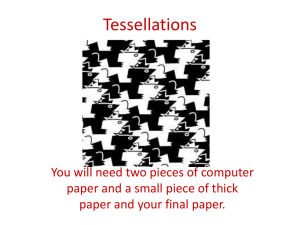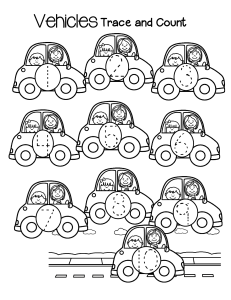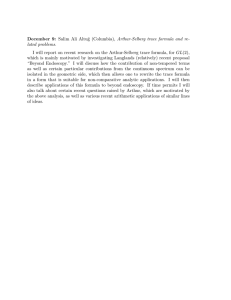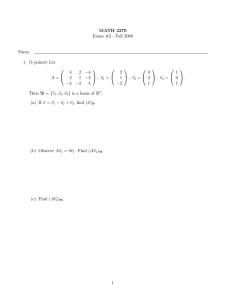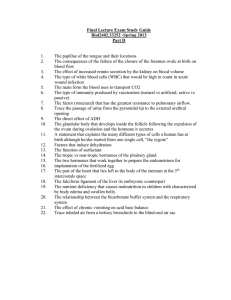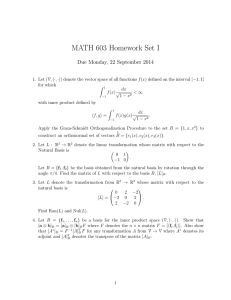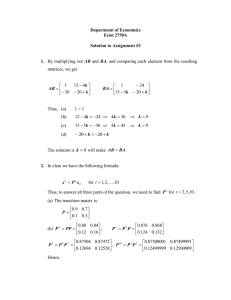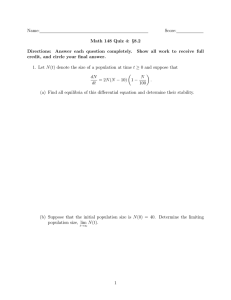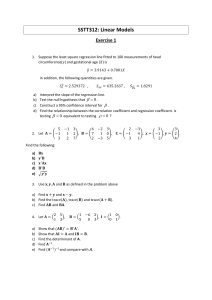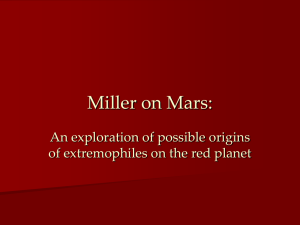MS Exam: LINEAR ALGEBRA JAN. 1998
advertisement
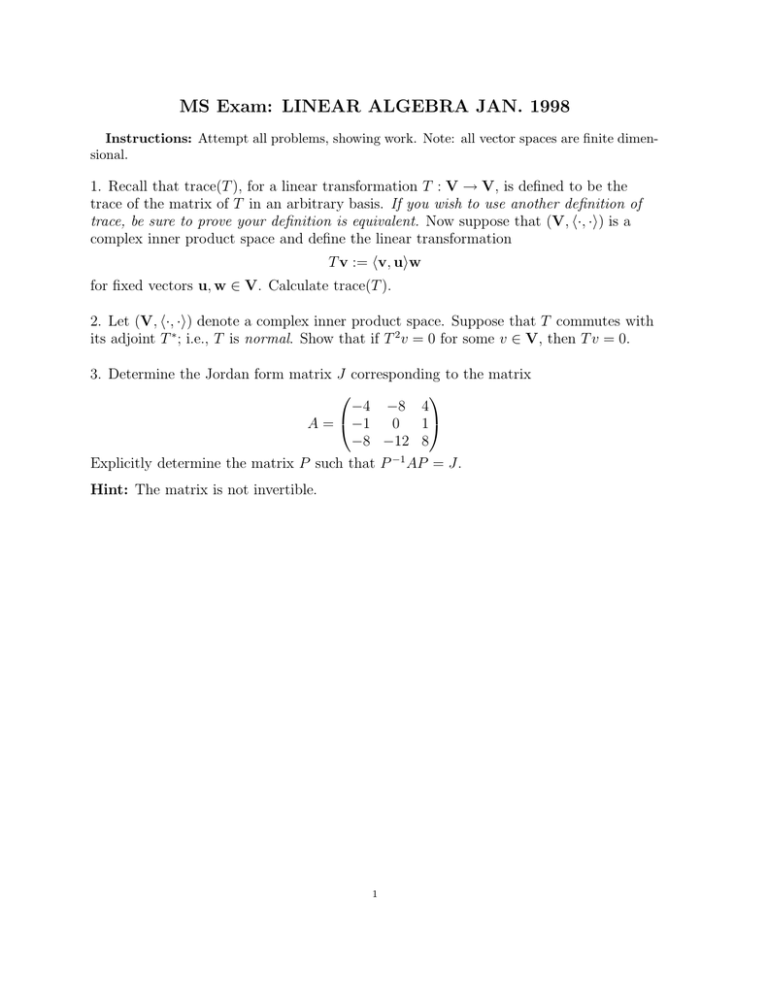
MS Exam: LINEAR ALGEBRA JAN. 1998 Instructions: Attempt all problems, showing work. Note: all vector spaces are finite dimensional. 1. Recall that trace(T ), for a linear transformation T : V → V, is defined to be the trace of the matrix of T in an arbitrary basis. If you wish to use another definition of trace, be sure to prove your definition is equivalent. Now suppose that (V, h·, ·i) is a complex inner product space and define the linear transformation T v := hv, uiw for fixed vectors u, w ∈ V. Calculate trace(T ). 2. Let (V, h·, ·i) denote a complex inner product space. Suppose that T commutes with its adjoint T ∗ ; i.e., T is normal. Show that if T 2 v = 0 for some v ∈ V, then T v = 0. 3. Determine the Jordan form matrix J corresponding to the matrix −4 −8 4 A = −1 0 1 −8 −12 8 Explicitly determine the matrix P such that P −1 AP = J. Hint: The matrix is not invertible. 1
